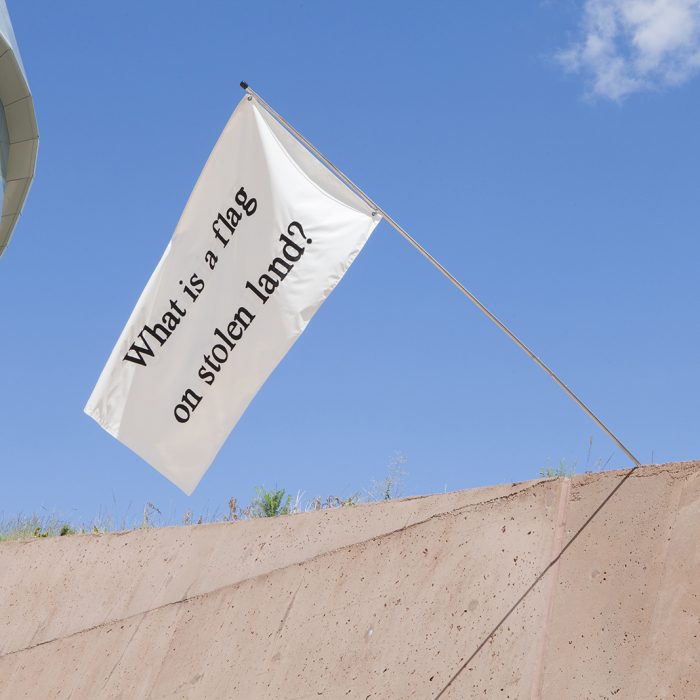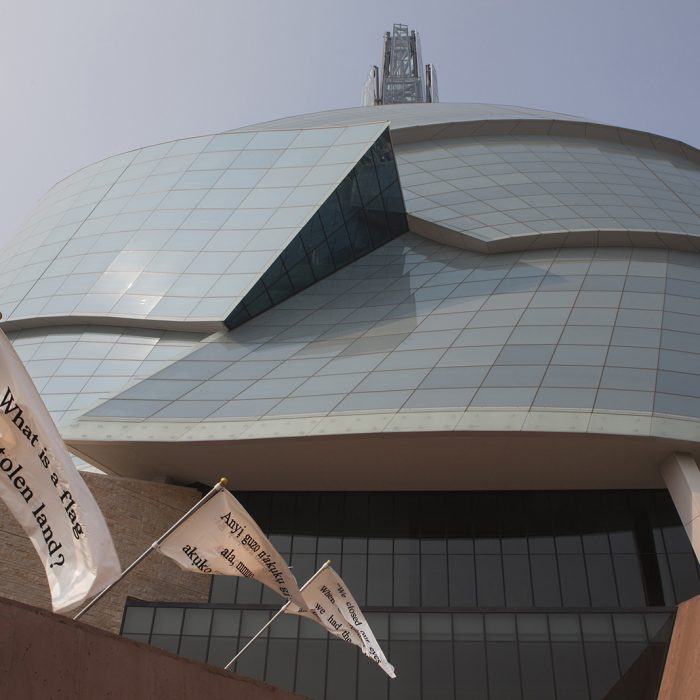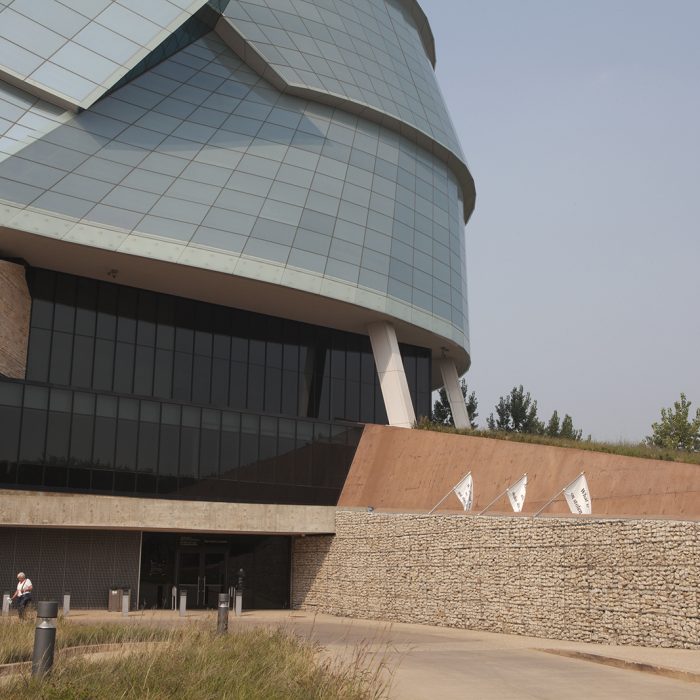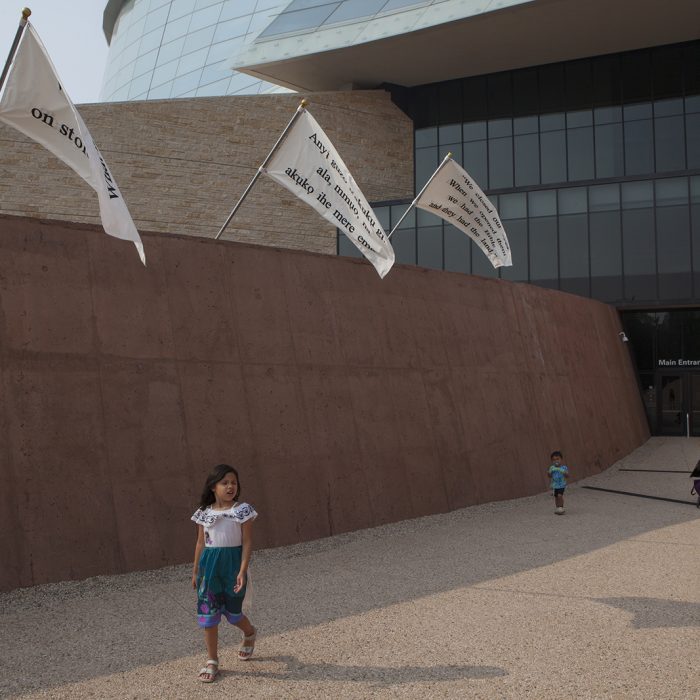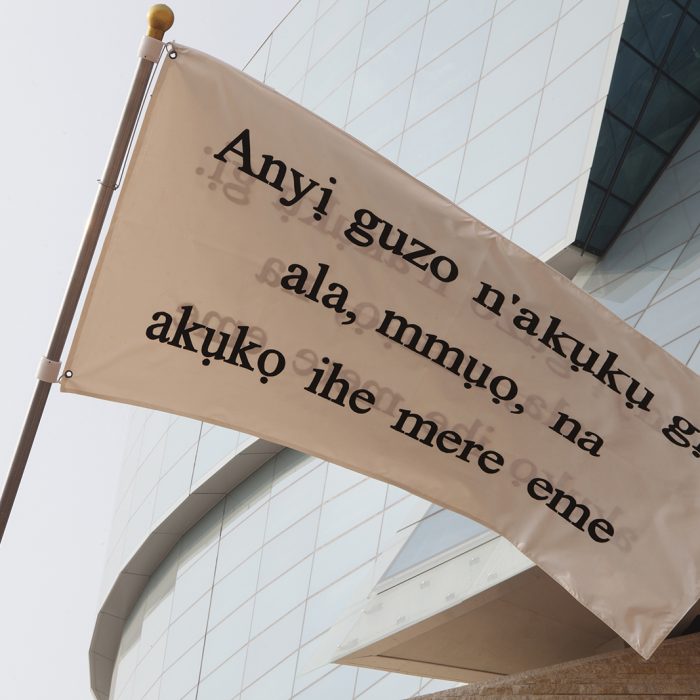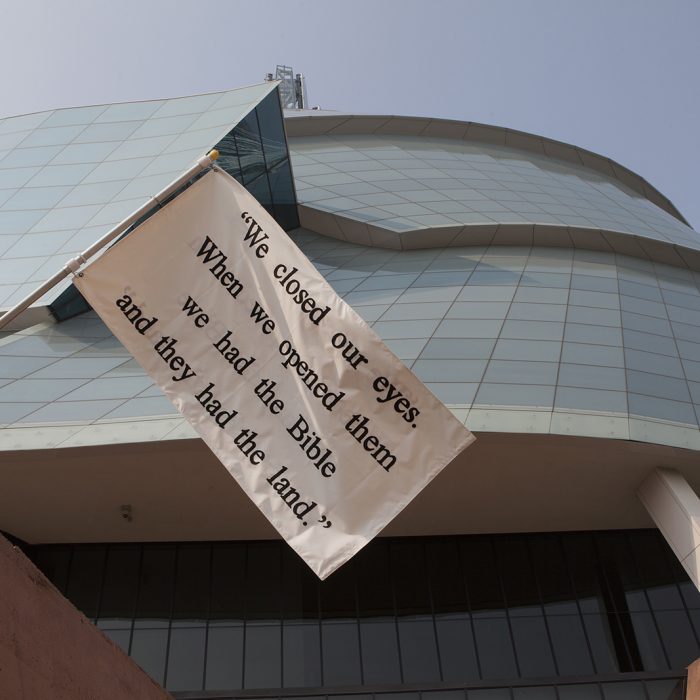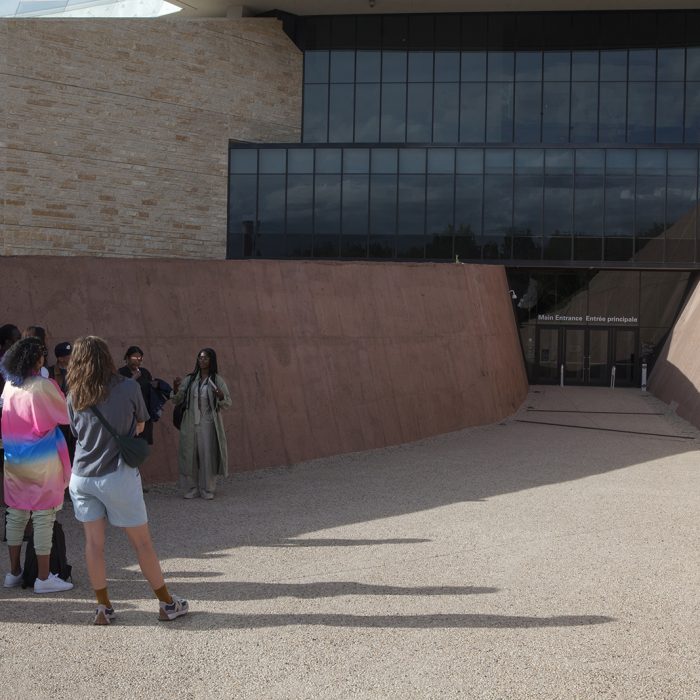Kosisochukwu Nnebe
Quebec
Kosisochukwu Nnebe, What is a Flag on Stolen Land, Printed Flags
Nnebe responded to the request for this year’s STAGES, delving into themes and issues that are relevant to the city’s landscape, concerns, and history. Wanting to know the land, the community, and the stories of Treaty 1 was central to focusing on how her work would not be merely placed on it but somehow woven within it. Initially, when Nnebe brought up the idea of wanting to work with an idea or project that had already been exhibited or probed was not originally something that the programming wanted to make space for. Through further dialogue between Nnebe and myself, it became apparent and very resonant that the questions she was already exploring could be achieved via a site-specific piece alongside outreach programming that would also engage with the community; the path together was set.
Her art practice touches on themes related to diasporic belonging, histories of migration, and the experiences of hyper/invisibility that come with being a racialized woman in Canada. A big part of her work is also concerned with what it means to call these particular lands home, given the histories of dispossession of Indigenous peoples from their ancestral and traditional lands.
In 2020, she curated They Forgot That We Were Seeds, an exhibition bringing together 8 Black and Indigenous women artists to explore the possibilities for solidarities on this land through the lens of food.
For this public art project, she is expanding on work she has been developing since 2021 that uses flags as an exploration of how newcomer/immigrant populations can come to be on these lands in ways that challenge colonial logic. Given that Winnipeg is Treaty 1 territory, she is creating flag(s) that ask what it means for us as newcomers and immigrants to be good treaty people.
Commissioning the women in the sewing coop, Cutting Edge, to create appliques for a custom flag(s) that will incorporate language from the Citizenship Oath that pertains to the recognition of the treaty rights of Indigenous people. Inviting the Treaty Commission in Winnipeg to organize a treaty education session with the women in the sewing coop to discuss the histories of colonialism and Indigenous peoples in Winnipeg, including the original intent and meaning behind the signed treaties and their relevance to this day.
Kosisochukwu Nnebe is a Nigerian-Canadian visual artist. Using phenomenology as a methodology, Nnebe’s practice makes use of hesitation as a generative form of affect that opens the viewer and the artist herself up to new forms of understanding. Touching on themes such as the process of racialization, diasporic experience, and epistemic violence and restitution, her work takes her lived experience as a starting point for engaging viewers on issues both personal and structural in ways that bring awareness to their own imbrication and complicity.
Nnebe’s work has been exhibited at AXENEO7, the Montreal Museum of Fine Arts, Place des Arts, the Art Gallery of Guelph, the Nia Centre, Studio Sixty Six, Z-Art Space, Station 16, and the Mohr Gallery in Mountain View, California. She has given presentations on her artistic practice and research at universities across Quebec, including Laval, McGill and Concordia, has facilitated workshops at the National Gallery of Canada and the Ottawa Art Gallery, and was an instructor of Art and Criticism at the Ottawa School of Art.
Location: 85 Israel Asper Way
Hours: 24 hour access
Acknowledgments
We are on Treaty 1 Territory. Plug In ICA is located on the territories of the Anishinaabeg, Cree, Oji-Cree, Dakota, and Dene peoples, and the homeland of the Métis Nation.
Plug In ICA extends our heartfelt gratitude to our generous donors, valued members, and dedicated volunteers. We acknowledge the sustaining support of our Director’s Circle. You all make a difference.
The artist acknowledges the support of the Canada Council for the Arts
We gratefully acknowledge the support of the Canada Council, the Manitoba Arts Council and Winnipeg Arts Council. We could not operate without their continued financial investment and lobbying efforts.
Plug In ICA relies on community support to remain free and accessible to all, and enable us to continue to present excellent programs. Please consider becoming a member of Plug In ICA and a donor at https://plugin.org/support or by contacting Caitlin at caitlin@plugin.org.
For more information on public programming and exhibitions contact Allison Yearwood at allison@plugin.org.
For general information, please contact: info@plugin.org or call



